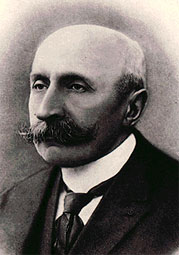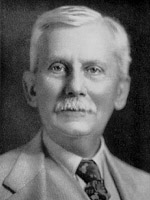Rudolph Schuller
Schuller, Rudolph (Rudolfo)
Rudolph (Rudolfo) Schuller (1873-1932) was a linguist with a special interest in the languages of Central and South America. He served on the faculty of the National University in Mexico City.
Schuller along with Charles Schucert was invited by the American Geographical Society to present a review of Pierre Termier’s paper on Atlantis. Schuller gave cautious support for a possible American Atlantis, but also noted “The fact that the narrative of the island’s submersion has been regarded by most scholars as a “fabled tale” proves little or nothing.”
However, Schucert was more sceptical(a). Their comments were published in Geographical Review (Vol. 3, No. 1 (Jan., 1917), pp. 61-66) and more recently on Jason Colavito’s website(b).
*(a) https://www.jstor.org/stable/207366?seq=1#page_scan_tab_contents
(b) https://www.jasoncolavito.com/rebuttal-to-termier.html*
Termier, Pierre
Pierre Termier (1859-1930) was a French geologist who analysed basaltic lava dredged up from the Atlantic seafloor 500 miles north of the Azores in 1898. Termier was confused  when he found that the sample was vitreous rather than crystalline. This had to mean that the water had been submerged after cooling. Since lava disintegrates after 15,000 years Termier was forced to conclude that there had been volcanic activity above sea level in the relatively recent past, perhaps coinciding with the destruction of Atlantis.
when he found that the sample was vitreous rather than crystalline. This had to mean that the water had been submerged after cooling. Since lava disintegrates after 15,000 years Termier was forced to conclude that there had been volcanic activity above sea level in the relatively recent past, perhaps coinciding with the destruction of Atlantis.
In 1912 Termier delivered a lecture[574] to the Institut Océanographique(b) in which he outlined his belief that Atlantis had been located in the Atlantic, a machine translation in English is available here as Archive 3667. A brief 9-page article by Termier, entitled New Light on the Lost Atlantis, has been reprinted by Kessinger Publishing. Termier also addressed the Smithsonian Institute who published his text in their 1915 annual.
In January 1917 a firm rebuttal of Termier’s ideas was written by Charles Schuchert of Yale University and published in Geographical Review,*however, the journal also published a favourable review by Rudolph Schuller in the same edition(a).*
In 1924 Termier he published La Derive des Continents, a paper in which he rejected Wegener’s theory of ‘Continental Drift’ as fanciful.
Although Termier’s claims are still quoted by some as factual, their scientific basis has been gravely undermined long ago, further weakening the case for Atlantis in the Atlantic.
*(a) https://www.jstor.org/stable/207366?seq=6#metadata_info_tab_contents*
(b) https://fr.wikisource.org/wiki/L%E2%80%99Atlantide_(Pierre_Termier) (French)
Schuchert, Charles
Charles Schuchert (1858-1942) was an outstanding American paleographer and palaeontologist and recipient of many  professional honours at home and abroad(a). In a paper entitled Atlantis and the Permanency of the North Atlantic Ocean Bottom delivered to the National Academy of Sciences in 1917(b), Schuchert concluded ‘that there was no known geologic data that prove or even help to prove the existence of Plato’s Atlantis in historic times’. He also noted ‘that the Azores are volcanic islands and are not composed of rocks seen on the continent’ and accepted the conclusions of the German geologist Curt Gagel(d) that five of the Cape Verde Islands and three of the Canaries are ‘unmistakably’ continental.
professional honours at home and abroad(a). In a paper entitled Atlantis and the Permanency of the North Atlantic Ocean Bottom delivered to the National Academy of Sciences in 1917(b), Schuchert concluded ‘that there was no known geologic data that prove or even help to prove the existence of Plato’s Atlantis in historic times’. He also noted ‘that the Azores are volcanic islands and are not composed of rocks seen on the continent’ and accepted the conclusions of the German geologist Curt Gagel(d) that five of the Cape Verde Islands and three of the Canaries are ‘unmistakably’ continental.
He also expressed similar views in a critique of Pierre Termier’s theory of Atlantis in the Atlantic in a paper published in the American Geographical Society’s Geographical Review of January 1917. The same review contained a similar response from Dr. Rudolph Schuller, a specialist in historical geography.
>(a) https://siarchives.si.edu/collections/siris_arc_217390<
(b) https://www.pnas.org/content/3/2/65.full.pdf+html
(c) https://www.jstor.org/stable/207366
(d)https://atlantisforschung.de/index.php?title=Curt_Gagel (German)
